Bird flu outbreak in Suffolk leads to chicken slaughter
- Published
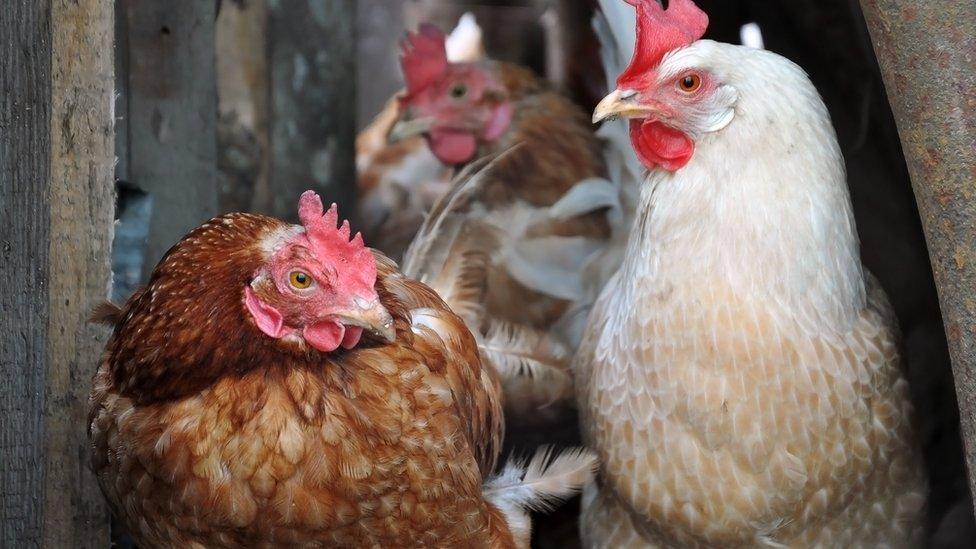
Some of the chickens were found to have a strain of avian flu
All 27,000 chickens at a farm in Suffolk will be slaughtered after cases of bird flu were confirmed.
A number of the birds were found to have the H5 strain of avian flu, the Department for Environment, Food and Rural Affairs (Defra) said.
It set up a 1km (0.6 mile) exclusion zone around the farm, near Eye, to limit risk of the disease spreading.
Dr Gavin Dabrera, from Public Health England, said the risk to public health was very low.
The Food Standards Agency said there was no food safety risk as long as poultry products, including eggs, are thoroughly cooked.
The strain at the commercial farm at Athelington has been identified as "low pathogenic avian flu" (LPAI).
Dr Dabrera, a public health consultant at Public Health England, said: "Avian flu (often called bird flu) is primarily a disease of birds and the risk to the general public's health is very low.
"As a precaution, we are offering public health advice and anti-virals to those who had contact with the affected birds, as is standard practice."
A detailed investigation is under way to determine the most likely source of the outbreak.
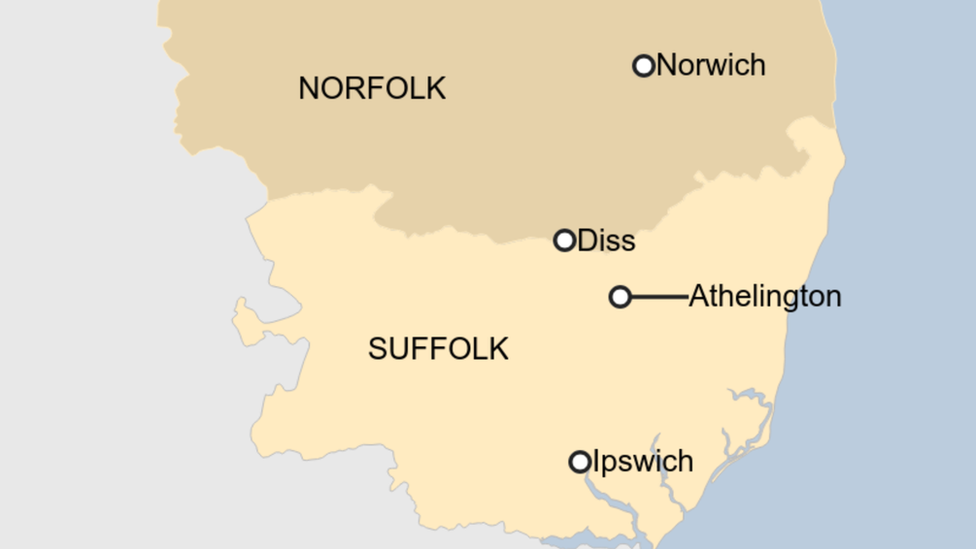
The outbreak was discovered at a farm in Athelington, near Eye in Suffolk
The British Poultry Council said there was no link to the Christmas turkey market, which was "unaffected" by the case.
Suffolk poultry farmer Alaistaire Brice, who farms near to the exclusion zone, said the outbreak was a concern for bird farmers but not the wider public.
He said: "It is a difficult one to take, especially at this time of year. We know it is always in the background but last year was quite an easy year for us with regards to the risks of managing birds."
Chief veterinary officer Christine Middlemiss said: "Bird keepers should remain alert for any signs of disease, report suspected disease immediately and ensure they are maintaining good bio-security on their premises.
"We are urgently looking for any evidence of disease spread associated with this strain to control and eliminate it."
National Farmers Union chief poultry adviser Gary Ford said: "This confirmation of avian influenza is devastating news for the farm affected. However, Defra's prompt action has helped limit the risk of the disease spreading, and provided that it's contained to one site will have very little impact on the wider poultry industry.
"It is imperative that all poultry keepers, including small backyard flocks, remain vigilant at this time and report any sign of disease immediately, as well as maintaining good biosecurity measures."
In 2017, some 23,000 chickens were destroyed at Bridge Farm in Redgrave on the Suffolk/Norfolk border after the H5N8 avian influenza virus was found, and in June the same strain was identified in about 35 chickens and geese at a farm near Diss in Norfolk.
Highly pathogenic avian influenza (HPAI) is the more serious type of the disease which can prove fatal to birds.
LPAI is usually less serious but can cause mild breathing problems in poultry, Defra said.
- Published15 June 2018
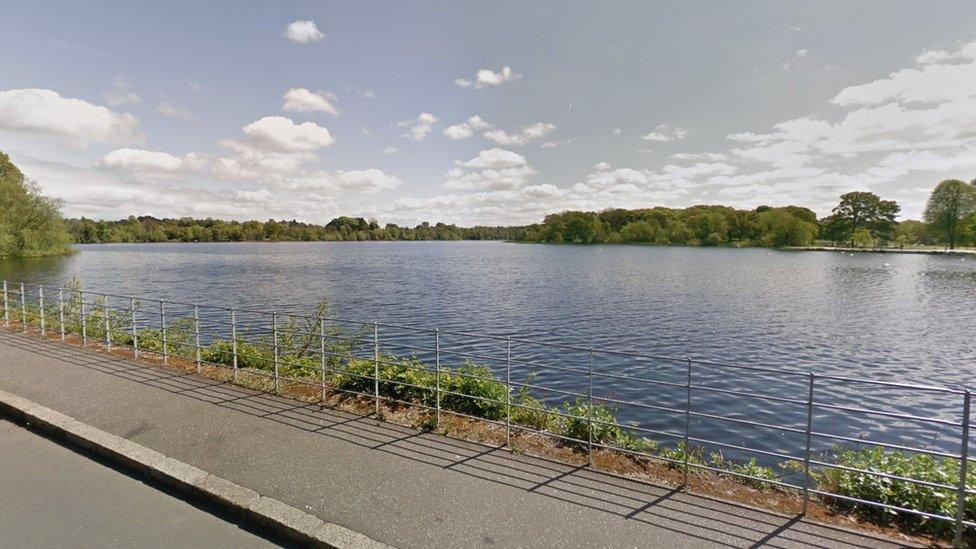
- Published5 February 2018
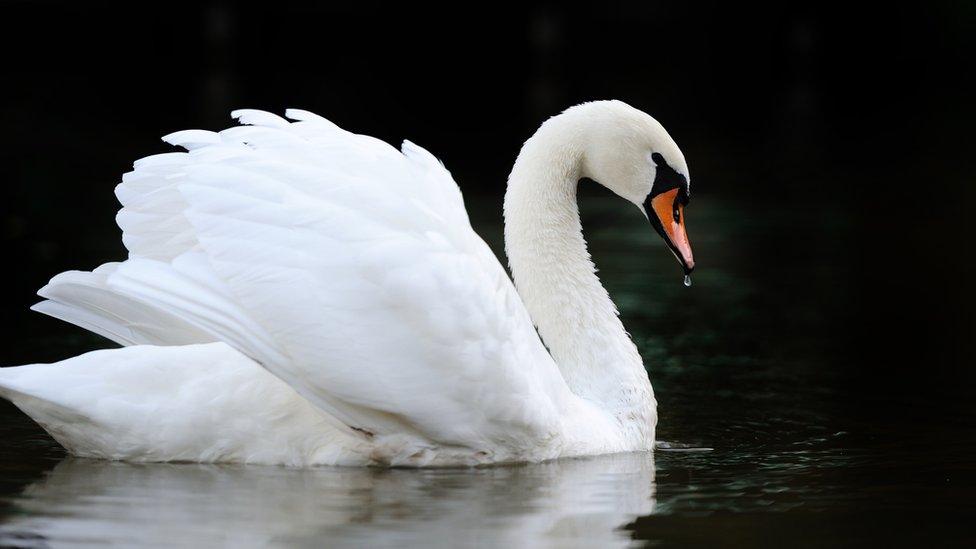
- Published24 January 2018

- Published22 January 2018
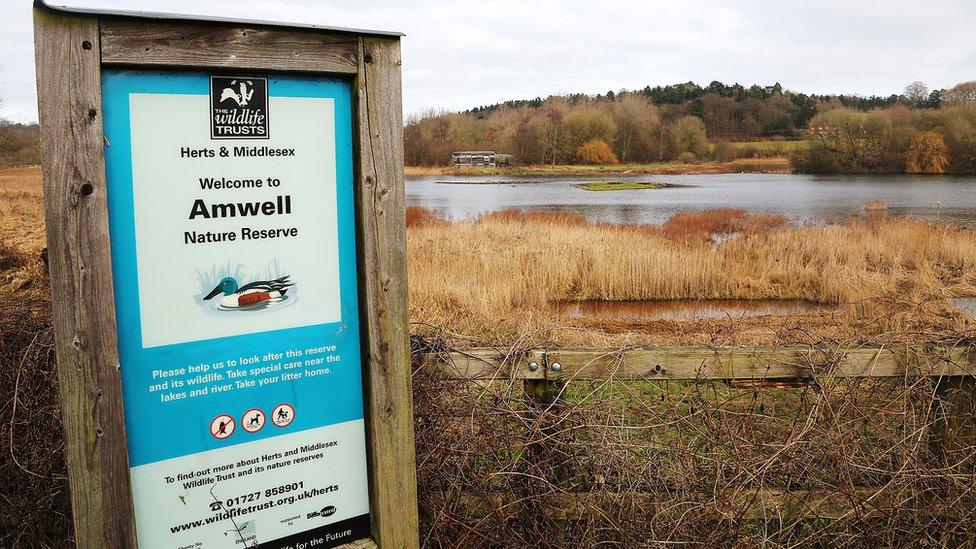
- Published18 January 2018
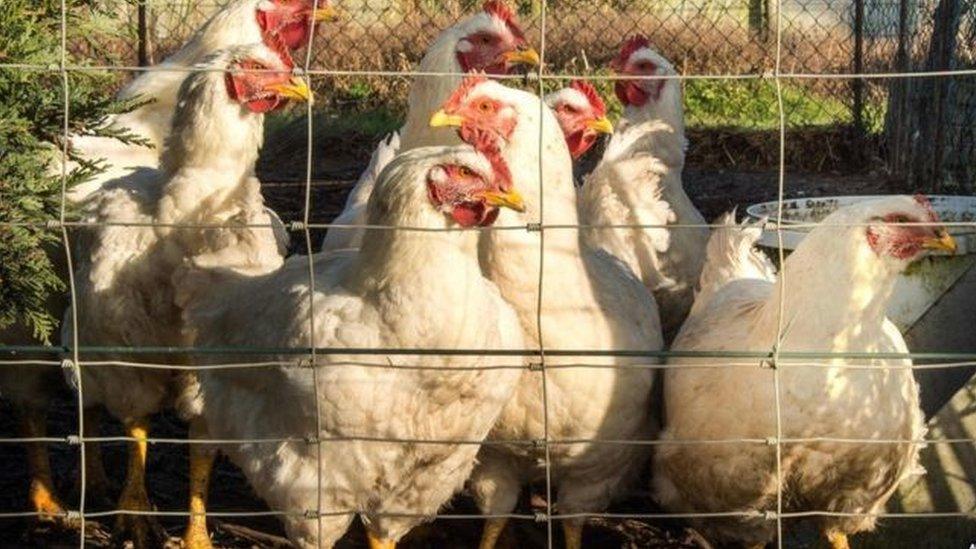
- Published4 June 2017
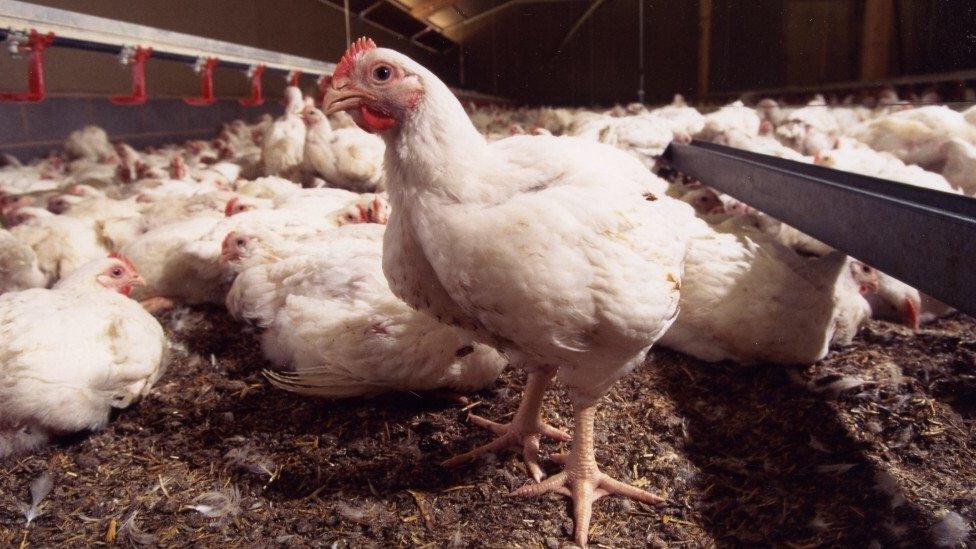
- Published13 February 2017
